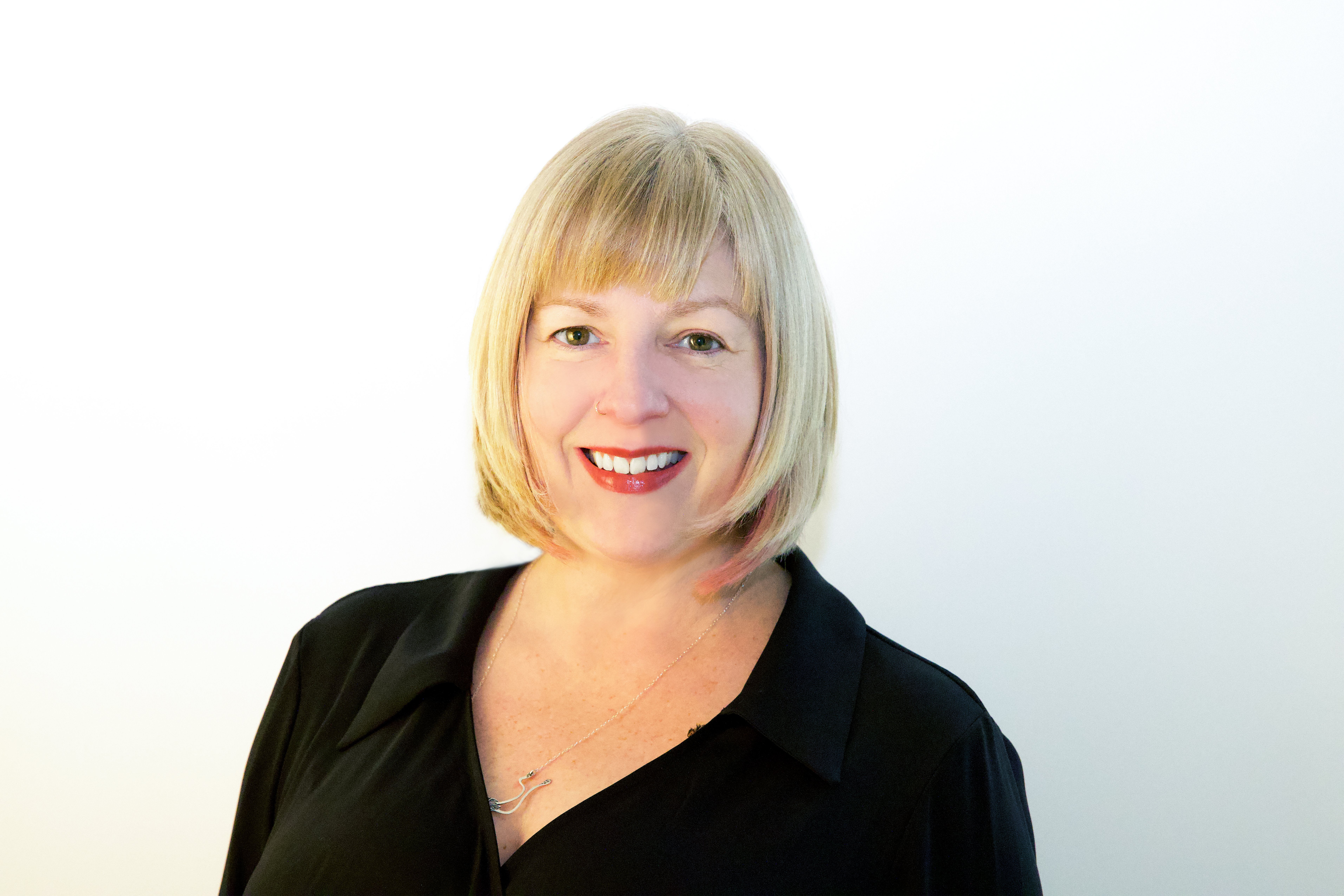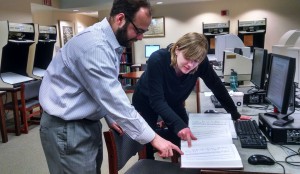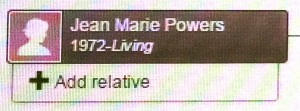Before I began researching my ancestry, I was overwhelmed by the undertaking. It seemed like an impossible task that would take up all my time — trying to make sense of all those great-great-great-greats with their shifting residences, repeating names, and overlapping dates. I’ve always been bad with numbers and dates, and tend to be distracted by anything new and exciting, so my past attempts at uncovering information about my ancestors have resulted in a confusing game of Internet hopscotch through random records I couldn’t really understand concerning people to whom I may or may not have been related. I had convinced myself that I was uniquely ill equipped for genealogical research.
But kind fate reached out a helping hand in the form of my friend and colleague Chris Child. Not only is Chris a really nice guy, he’s one of the smartest people I’ve ever met, and a legend in the genealogical community. He offered to help me begin and guide me through my research. I accepted immediately, before he could change his mind.
Later that same week, Chris and I met in the fourth floor library at NEHGS, home of our Vital Records indexes. “I just don’t know where to begin,” I said. But Chris did. He logged onto one of our library computers and pulled up a blank family tree program. “That’s easy,” he reassured me. “We begin with you.”
Entering that first piece of information felt satisfying. I had finally taken the plunge. But I couldn’t remember the birth dates or places of either parent, only that both were in Massachusetts. Chris was not concerned; he said it was a good opportunity to delve into the Internet databases, by searching for people I’d known whose life events would be familiar. We began with my father, who died when I was twelve. Chris consulted the Social Security and Massachusetts Death Indexes, where he quickly located my father and determined that he was born and died in Massachusetts. Seeing the death certificate was jarring. I felt a rush of love, longing, and tenderness. I knew then why so many people consider family history research an important part of their lives, and also, perhaps, why I made so many excuses to avoid it myself — all these years later, I still miss my parents. Seeing their names in these records is hard. But I’m ready now to turn that pain into something meaningful.
From the information gleaned in the death index, we were able to move to the Massachusetts Birth Index, and then the 1930 federal census. Suddenly the process became very exciting. My tree filled with names I remembered from my dad’s stories — his beloved mother, who died young; his grandfather, a police officer killed in the line of duty. In the space of an hour we went back five generations, adding images of documents for me to peruse later. And finally I felt that thrill I’ve heard my genealogist friends describe all these years — the hour was up, but I could have kept searching all day.
Share this:

About Jean Powers
As Senior Editor for American Ancestors magazine and the Weekly Genealogist enewsletter, Jean writes and edits articles, strategizes content, and provides illustrations. She also participates in a a variety of organization-wide initiatives and is a member of the Youth Education Committee. An award-winning Master Urban Gardener, Jean manages the American Ancestors garden and coordinates our Garden Committee. Jean Powers joined the American Ancestors staff in 2002 as an editorial assistant and has also held the positions of production editor and associate editor. She has extensive experience in outreach and digital communications. Jean received her BFA in Writing, Literature, and Publishing from Emerson College. Prior to American Ancestors, she was employed at the Massachusetts Historical Society and Harvard Business School.View all posts by Jean Powers →

